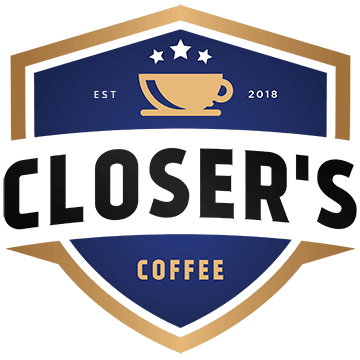
There are four common sales personas – the hard worker, the lone wolf, the relationship builder, and the problem solver. These four personas, highlighted in the incredibly popular sales book, “The Challenger Sale” by Brent Adamson, are found throughout organizations across nearly all industries.
Each persona has a unique strategy to win customers, along with unique challenges they present to sales management – gamification can work to enhance each persona’s individual sales technique while diminishing any potential negative aspects.
The Hard Worker
Known for not focusing all of their efforts on customer value drivers, the hard worker wants to achieve success and develop their career, they just don’t necessarily have the proper internal toolset to implement their desired growth. Gamification tools can help motivate this persona into focusing more on the customer’s value drivers by rewarding certain behaviors and providing positive reinforcement via rewards and recognition.
The Lone Wolf
Lone wolves are usually high-performing team members – they just aren’t good at actually being a member of the team. How can sales gamification software change this behavior, while maintaining the sales rep’s high level of output?
By motivating the lone wolf to collaborate, work together, and celebrate his or her team members, gamification tools offer managers a unique way to involve the lone wolf in team dynamics without sacrificing their inherent sales capabilities. Gamification tools increase team camaraderie and relationships, and for the lone wolf, this could mean the difference between maintaining current performance levels (at the detriment of the overall team) versus next-level growth (where all team members are more productive and engaged).
The Relationship Builder
Relationship builders are the typical “salesperson” one thinks of when they imagine a sales rep – they work hard to make contacts, build relationships, and slowly work their way into deals. Gamification in sales can capitalize on the relationship builder’s natural skillset and catalyze higher productivity by injecting an element of fun, engagement, and recognition into the mix. By rewarding certain behaviors and acknowledging certain sales tactics, the relationship builder can become a more well-rounded salesperson.
The Problem Solver
Sales reps who are problem solvers are naturally adept at discovering new solutions for their leads and prospects, as well as the company they work for. Sales gamification tools can amplify these positive traits via rewards and reinforcement, while also developing the problem solver’s sales toolkit through engaging gamified experiences – prioritizing different sales strategies, approaches, or tactics that will enhance the rep’s repertoire.
Actionable Tips on Leveraging Sales Gamification
Sales gamification tools can be powerful game-changers that elevate sales departments to new levels of performance and productivity, but what are some of the top considerations leaders need to address before purchasing a solution, or implementing gamification software into their tech stack? Below we investigate.
Know Your Sales Reps
Gamification only works if the awards and achievements that are given out are what the users actually want to receive. Understanding what motivates your sales teams and their individual reps is crucial to successfully implementing gamification into your organization.
Focus On Behavior, Not Numbers
At first glance, it might make sense to reward the sales rep who gets the highest number of leads during a given period. However, most experts agree that it isn’t numbers that should be rewarded in sales gamification but rather positive behaviors that drive real business growth.
For example, instead of rewarding the sales rep with the highest number of leads, organizations should consider rewarding the rep that brings in the highest number of qualified leads – small differences like these can make a world of difference between successful and subpar gamification programs.
Bring Together the Sales Team
Gamification should not occur in a vacuum – celebrations, failures, and current ongoings should all be shared openly and experienced as a team. The point of gamification is to build team productivity, camaraderie, and increase sales – unifying sales teams and departments around a common, engaging experience is an excellent way to achieve this.
Final Thoughts
The gamification industry is on track to experience a 25% growth spurt through 2027 – in the business world, this is an extremely high growth level and representative of how popular the technology will grow to become.
In regards to gamification in sales, organizations can benefit from the technology’s wide range of performance-inducing advantages, but they need to carefully consider the best sales gamification software that is the most appropriate choice for their specific industry, sales team structure, and business end goals.
The Closer’s App is a Game Changer
The Closer’s App allows sales leaders to motivate, challenge and reward their sales organization with proven game theory and mechanics that drive results. 90% of sales managers surveyed state that sales output increased when gamification was applied to their operations, Our gamification platform has proven to increase productivity, boost performance and create a friendly competitive environment for sales team of all sizes.
Closer’s has a sophisticated rating system to help quantify the work attributes of your sales reps, allowing managers to better coach and asses their team. Closer’s has a sophisticated rating system to help quantify the work attributes of your sales reps, allowing managers to better coach and asses their team. Research shows that gamification and friendly competition can drive team morale and comradery.
Download The Closer’s App now and take your team to the next level!






